
Tread Pattern Comparison Guide
Knowing the basic ag tire tread patterns is important when choosing the right tire for your application - and learning the differences between them is equally as important.
To start, the language itself, R-1 and R-1W, is the tire industry standard, defining the minimum designed tread depth of an agricultural traction tire. The Tire and Rim Association defines the minimum bar height based on the tire width and the aspect ratio (height of the sidewall).
The R-1 designation is considered standard tread depth. On the other hand, the tread depth of an R-1W tire is at least 20 percent deeper than the same-sized R-1 tire. In simple terms, R-1W tires have a taller bar height, but all the other dimensions, such as overall diameter and rated load capacity, are the same between the R-1 and R-1W tires. Let’s dive a little deeper into these specific tread patterns:
R-1
| R-1 is the standard tire tread and what is considered the most common tread pattern you will see. These tires are commonly used on agricultural equipment and can travel across uneven, rough terrain, or wherever traction is needed. R-1 agriculture tires feature a moderately deep tire tread that will give equipment strong traction on wet or muddy land. | 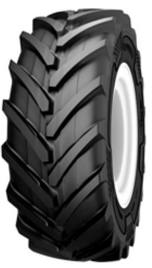 |
| Is your land prone to having water issues or in a floodplain? If so, then you may benefit from the R-1W agriculture tires. If you are losing traction with a standard R-1 tread design, R-1W tires offer the greatest traction and support if the ground is wet or tough to navigate with heavier equipment. | 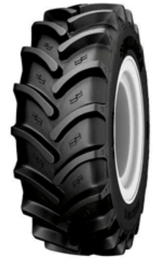 |
R-2
| If you are in an area where wet harvests are common, like rice or cane sugar fields, then the best agriculture tire tread for you might be the R-2 style tread design. Their massive lug sizes and tread depth make these tires excellent for maintaining traction, even in the wettest conditions. Though higher priced, their superior gripping power makes them a must for producers in wet terrain. | 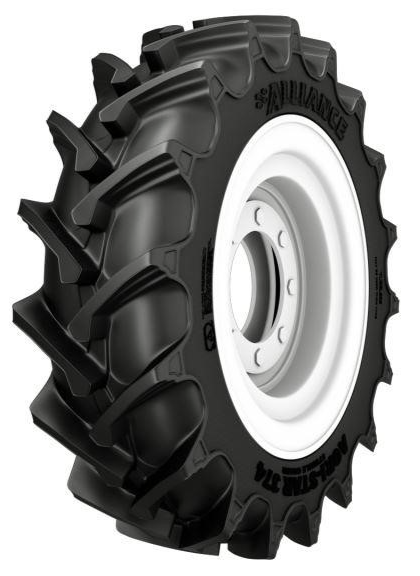 |
R-3 or Turf Tires
| Moving up the chain to R-3, these are known as “turf tires.” R-3 tires are designed to give traction and stability when traveling across grass. The tread depth of R-3 agriculture tires is deep enough to offer plenty of traction and control, while not leaving damaging tread marks on the grass or yard. R-3 turf tires are a great option when you need to handle jobs on paved or graded ground, or lawns. If you need a smooth and efficient ride that will be easy on grassy areas, the R3 turf tire tread pattern may be the perfect tire for you. | 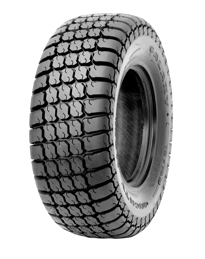 |
R-4 or Industrial Tires
| The R-4 is also known as the “industrial tire,” due to its extreme durability. You will often find industrial R-4 tires on equipment such as skid steers, forklifts, and other equipment requiring higher traction and strength levels. These tires are designed to help move and haul heavier items while keeping the yard or lawn safe from deep tire tracks. They feature a barred pattern, like the R-1 agriculture tire, but are less aggressive. | 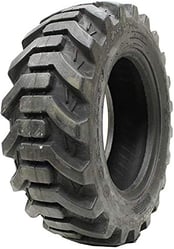 |
550 or “Multiuse Tire”
| The powerhouse of tires, as we like to call it, the 550 multiuse pattern is used in agricultural applications because of its versatile tread design. Specific block tread design enables high performances on snow-covered as well as on sandy terrains. With a basic directional lug design, divided by separated blocks, this tire provides a good grip on soft surfaces. Additionally, the high number of blocks and rubber enables long tread wear life and low rolling resistances during transport on hard surfaces. Ground pressure distribution and tread wear are provided by steel belted carcass structure. Last but not least, steel belts give the most efficient puncture protection. This tire is an all-around great solution to many agriculture applications. | 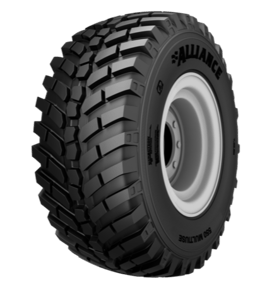 |
If you have questions about which tread pattern is best for your application, get in touch with one of our Client Advisors today:

